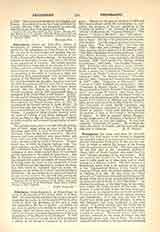

Fredegarius, the name used since the sixteenth century (for what reason is not known) to designate the supposed author of an anonymous historical compilation (Chronicon Fredegarii) of the seventh century, in which is related the history of the Franks from the earliest times until 658. The name appeared for the first time in the “Antiquites gauloises” (Paris, 1599) of Claude Fauchet, who states that it is used “through ignorance of the real author”. Modern research has resulted in the discovery that the work is really made up of three texts each of which belongs to a different author. The first author is a Burgundian whose work is an epitome of six books of the “Ecclesiastical History of the Franks“, by Gregory of Tours, from the earliest times to the death of Chilperic I in 584. He also wrote the “Liber generationis” and made extracts from Idatius and St. Jerome which form, in the critical edition of Krusch, the first and second books of the “Chronicon’ Including the epitome, or the third book, he has therefore written the largest portion of the work. This portion, it must be said, is also the least important, for it contains no original matter, and confines itself to the use of previous sources, and not without blunders and inaccuracies. It is true that the part of the fourth book which goes to 613 (Krusch), or even to 616 (Schnurer), has been attributed to the same author. The latter remarks that the writer was in touch with Warnacharius the “mayor of the palace” and believes that he may be identified with Agrestius, a monk of Luxeuil. The second author, also a Burgundian, belonged to the south of France and had apparently spent some time at Paris. He wrote an original work extending to the year 642 and containing information which is valuable because not to be found elsewhere. He is an impartial and veracious author whose testimony deserves to be received in general with great confidence. The third author, who brings the “Chronicon” to a conclusion, is a partisan of Grimoald, the “mayor of the palace” and a great admirer of the Carlovingian family. Chapters lxxxiv to lxxxviii and several interpolations are his. These rather important conclusions have been reached in recent times by the critical acumen of B. Krusch. Several points have been more precisely defined by G. Schnurer, and their opinions taken together may be considered definitive, although the last word on the subject has not been said.
Interest in the “Chronicon” of Fredegarius consists for us in the fact that it is the sole document which informs us in a continuous way concerning that period in the history of the Franks which goes from 591 (the year in which the “Ecclesiastical History” of Gregory of Tours comes to a close) to 658. Apart from this work we have almost no knowledge of the period of Frankish history covered by it. All three writers exhibit, it is true, much barbarism in diction and in thought; we are all the more indebted to them for the serious effort they made to preserve some memory of the events of their times. The “Chronicon” of Fredegarius was edited by B. Krusch in “Scriptores Rer. Merovingicarum”, II (Hanover, 1888).
GODEFROID KURTH

